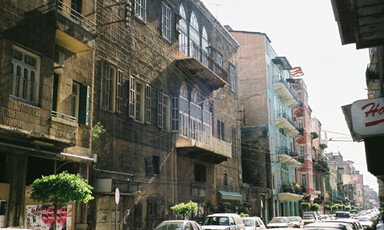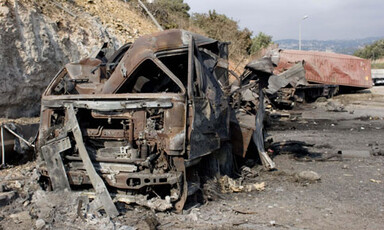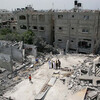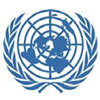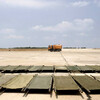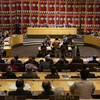
Economic and Social Council adopts resolutions on repercussions of Israeli occupation on Palestinians
27 July 2006
The Economic and Social Council this afternoon adopted a resolution on the economic and social repercussions of the Israeli occupation on the living conditions of the Palestinian people in the occupied Palestinian territory, including East Jerusalem, and the Arab population in the occupied Syrian Golan. The resolution, adopted by a roll-call vote of 45 in favour to 3 against, with 3 abstentions, called for the lifting of the severe restrictions imposed on the Palestinian people; and demanded that Israel comply with the Protocol on Economic Relations between the Government of Israel and the Palestine Liberation Organization signed in Paris on 29 April 1994 and that it urgently transfer Palestinian tax revenues. Read more about Economic and Social Council adopts resolutions on repercussions of Israeli occupation on Palestinians


